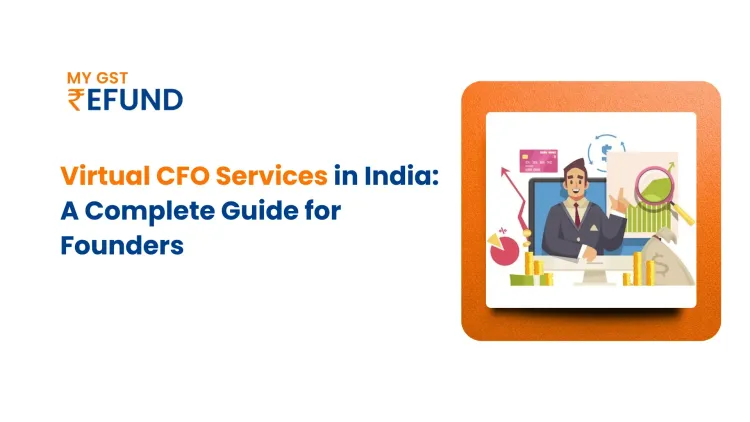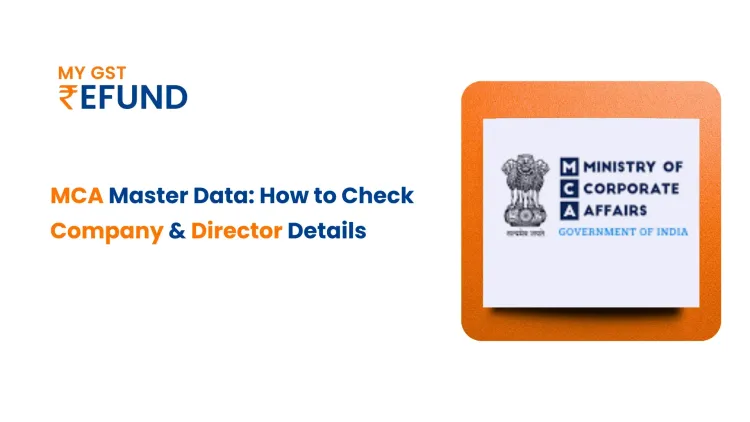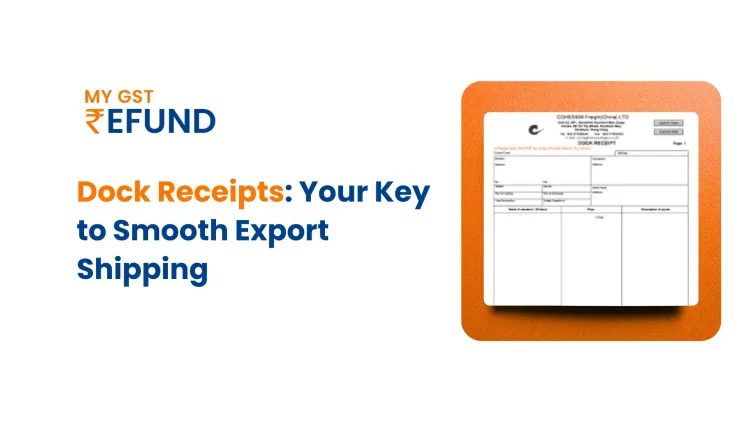GST for Freelancers in India: Registration, Rates & Compliance
Published on: Thu Aug 14 2025
What is GST, and why does it matter for freelancers?
Overview of GST’s relevance across business types, including freelancers:
The Indian suppliers of goods and services, including independent contractors, are subject to GST. The GST registration becomes required if your yearly turnover surpasses ₹20 lakh (₹10 lakh in special-category states), or if you offer export, interstate, or OIDAR services.
Definition of a freelancer under GST:
A freelancer who works under GST is an individual on a contractual basis, not as an employee, and provides services such as writing, designing, software development, or consulting. As such, they are treated as service providers, and the relevant GST provisions apply to them.
E.g., independent service providers (writers, designers, developers, consultants).
Application of GST: A Single Tax for All
All Indian suppliers of goods and services, including independent contractors, are subject to GST. In place of the previous disjointed taxes like VAT and service tax, it guarantees a simplified indirect tax system. A person or freelancer must register for GST if their total yearly revenue surpasses ₹20 lakh (or ₹10 lakh in states that fall under special categories) or if they offer export, interstate, or OIDAR (Online Information & Database Access and Retrieval) services.
GST & Freelance Categories: Relevant Designers, Consultants, and Web/Software Developers
- If earnings surpass the threshold or entail export or interstate activities, registration is required.
- Regardless of turnover, digital content creators (e-books, music, movies, and subscriptions) are frequently subject to OIDAR services, which require GST registration.
- Even below the threshold, voluntary registration may help claim input credits. Consultants and professional services (accounting, marketing, freelancing platforms like Upwork) are required to register if their turnover exceeds ₹20 lakh or if they serve clients from out of state or abroad.
A freelancer is a person who works under contract for no pay and offers services like writing, designing, software development, consulting, or other professional offerings. Since freelancers are regarded as service providers under GST laws, they are subject to the same regulations as service businesses.
Discover Your GST Refund Instantly—Use Our Free Calculator Today!
GST Registration Requirements
Mandatory Thresholds
- if service turnover is above ₹20 lakh (or ₹10 lakh in states that fall under specified categories).
- Mandatory Registration Regardless of Turnover
- For OIDAR services (digital delivery like online ads, cloud, e-books), GST registration is mandatory regardless of turnover
- For export of services (even at zero-rated rates), GST registration is required
Voluntary Registration
- Benefits, even if below the threshold, such as claiming input tax credit
OIDAR Services Explained
Definition and examples: digital services delivered online with minimal human intervention
OIDAR stands for Online Information and Database Access or Retrieval services. These are services delivered over the internet or electronic network and cannot be provided without technology, with no requirement for physical interaction. Recent amendments (Finance Act, 2023) have broadened the definition—removing the need for "minimal human intervention"—so now virtually any service delivered online qualifies as OIDAR.
Examples of OIDAR Services
services that fall under OIDAR include:
- Internet advertising services, including Google Ads, Facebook Ads, etc
- Cloud services, which include Google Drive
- other sources, e.g., E-books, music, movies, software, and other digital content
Online gaming platforms
- Web hosting and data storage services
- Search engines and online directories
- Online learning platforms and training courses
Applicability to freelancers -mandatory registration for such services
OIDAR Services by Freelancers — GST Registration Required
Freelancers offering OIDAR services—such as digital ads, cloud platforms, e-books, online gaming, or software delivered over the internet—must register for GST regardless of their turnover. This requirement applies even if their annual income is below the standard ₹20 lakh (or ₹10 lakh in special category states), making it mandatory under the GST law.
What is the Composition Scheme: Is It Applicable?
Freelancers, including service providers like designers, consultants, or developers, are not eligible for the GST Composition Scheme. This simplified tax regime (6% flat tax and least compliance) is restricted to in-state businesses and excludes freelancers offering services, particularly those involving inter-state or digital supplies. Therefore, the freelancers must continue under the regular GST scheme, even if their turnover is below ₹50 lakhs.
General scheme for small taxpayers (turnover up to amount-₹50 lakh) with 6% GST
- Small taxpayers with an annual turnover of up to ₹50 lakh
Service providers , can opt for the special composition scheme, paying GST at a flat rate of 6% (3% CGST + 3% SGST). - Service providers (including freelancers) are generally not eligible for the composition scheme, with a few exceptions
- Service providers (freelancers) generally cannot opt for the GST
- Composition Scheme-with limited exceptions (e.g., restaurants). They become eligible only if their turnover is ≤ ₹50 lakhs, they provide only intra-state services, and fulfill specific conditions under the service composition scheme introduced in 2019.
- GST Rates for Freelancers
Default Rate: Most freelance services are taxed at 18% GST. This applies broadly across professional, digital, IT, and consultancy services.
Lower Slabs & Zero-Rated Supplies:
- Certain digital or goods-related services might attract 5%, 12%, or 28%, or even 0%, depending on the type and legal classification.
- Example: E-books (OIDAR services) are taxed at 5%.
- Exported services can be zero-rated, provided export conditions or LUT options are met.
Invoicing Rules
- Input Tax Credit (ITC)
- Eligibility for registered freelancers (regular scheme) to claim ITC on business-related expenses
- Freelancers registered under the regular GST scheme can claim ITC on GST paid for business-related expenses-such as software subscriptions, equipment, internet, rent, professional services, travel, and utilities-provided they have valid invoices and the supplier has filed their returns.
Note: the composition scheme restricts ITC claims
Under the GST Composition Scheme, taxpayers—such as freelancers taking advantage of the simplified 6% rate under Section 10(2A)—cannot claim Input Tax Credit (ITC) on their business purchases. All GST during purchases must be borne fully out of pocket.
- Additionally, ITC cannot be claimed for GST paid on purchases made from composition scheme registrants, even under the regular GST system.
- Return Filing Obligations
GST Return Filing Obligations for Freelancers -Quick Overview
Annual Filing Requirements
Freelancers registered under GST are generally required to file around 25% returns per year, comprising two monthly returns and one annual return.
Monthly & Quarterly Returns
- GSTR-1 (outward supplies): By the month's 11th is the deadline for GSTR-1 if submitting quarterly, the deadline is the 13th.
- GSTR-3B (summary of tax liability): The summary of tax liability, or GSTR-3B, is due on the twentieth of the following month.
- Annual Return
GSTR-9 (annual summary) may be required if your turnover exceeds ₹2 crore. NIL Return Compliance
Even if no invoice is issued in a period, freelancers must file a NIL return to maintain compliance.Return/Form Frequency Due Date Notes GSTR-1 Monthly/Quarterly 11th (M) / 13th (Q) Outward supply details GSTR-3B Monthly (or QRMP Qtr) 20th Summary of tax liability GSTR-9 (Annual) Yearly (if turnover > ₹2 crore) 31st Dec (FY) Annual return summary NIL Return As needed By respective due date Must file if no invoices issued
Late Filing Fees:
- ₹50 per day (₹25 CGST + ₹25 SGST) for regular returns (such as GSTR-1 and GSTR-3B).
- ₹20 per day (₹10 CGST + ₹10 SGST) is the nil return.
The maximum amount is ₹500 for returns of zero ₹ and ₹5,000 for regular returns.
Penalties for the Annual Return (GSTR-9):
- There is a ₹200 daily late fine (100 CGST + 100 SGST).
- The Act's maximum cap is 0.25 percent of turnover (0.5% total for CGST + SGST).
Interest on Past-Due Payments:
- Charged at 18% per annum on any unpaid GST amount until it’s paid.
- Time-Bar for Late Returns:
Filing of Returns: From July 1, 2025, GST returns can not be filed if it is overdue by more than 3 years from the original due date.
Late fees for Returns: ₹50/day (₹25 each for CGST & SGST) for delayed filing of GSTR-1 or GSTR-3B, which is capped accordingly as per rules.
Nil return penalty: ₹20/day for late filing of NIL returns.
Interest: 18% per annum charged on any delayed tax payments.
Compliance Enforcement Measures
- Corrections must be made using GSTR-1A as of July 2025, after which the GSTR-3B is no longer editable once filed.
- As of July 2025, GSTR-1A must be used for corrections; once filed, GSTR-3B cannot be edited.
- GST returns older than three years cannot be filed after July 1, 2025.
- It is generally required to file about 25 GST returns annually, which include monthly (GSTR-1, GSTR-3B) and annual forms.
- The frequency of filings may vary based on the turnover value.
Risks of Penalties and Compliance
- Depending on the turnover value, filing frequency may change.
- Penalty & Compliance Risks
Heavy Penalties: In this case, up to ₹25,000 for not registering or issuing invalid GST invoices.
- Under ₹10,000 or 10% of the unpaid tax (whichever is higher) for non-fraud defaults; 100% penalty for fraud cases.
Late Filing Fines:
- Regular returns exceed the late fee of ₹50/day (₹25 CGST + ₹25 SGST); nil returns ₹20/day.
- The annual return (GSTR-9) late fee is higher.
Interest on Tax Delays:
- Charged at 18% per annum on unpaid GST.
Risk of GSTIN Suspension:
- Non-filing for three consecutive periods may lead to suspension of GST registration.
Limited Time to File Delayed Returns:
From July 2025, GST returns can only be filed or corrected within three years of their due date-past that, no compliance option remains.
Conclusion
Most independent freelancers cannot avoid GST since it increases trust, makes Input Tax Credit possible. Penalties from authorities, bank account closures, and legal issues may arise from failing to pay GST.
For an independent freelancer, GST compliance is sometimes crucial. It required registration after turnover thresholds, and export services, such as OIDAR, provide credibility, access to Input Tax Credit, and a favorable legal position. Maintaining current rates, filings, and invoices promotes trust and helps prevent fines.
Related Posts





